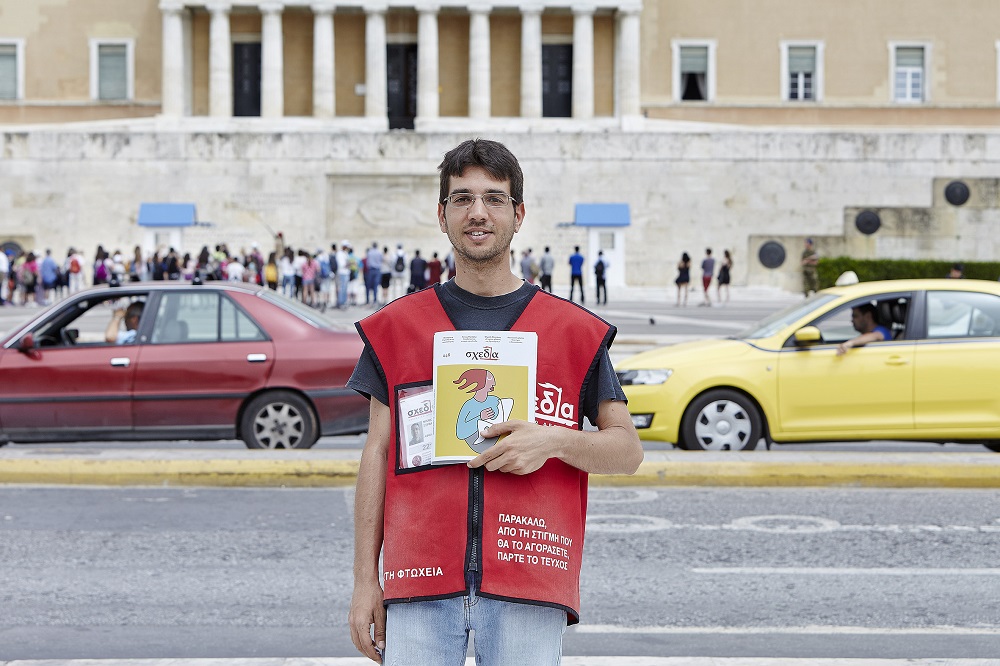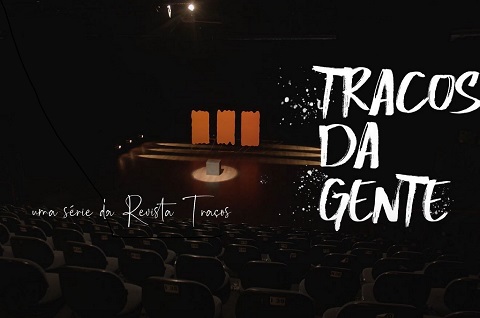By Nikos Servos, Shedia
There are times when you want to scream, protest and change people, behaviours and mind-sets. You want to change society. Instead, you just sit there, observe and think.
“Oh, my thoughts, where have you carried me?” you wonder. To the past? To the future? You don’t mess with those thoughts: they can’t be changed. I live right now, today. And what can I do? I just put bizarre thoughts to paper. I’ve been actively curious my whole life. Besides, the road of excess leads to the palace of wisdom.
Me, am I wise? I am rich in experiences that burden the mind and the soul. Useless for the indifferent, incredible for the doubting Thomases. As for me? I am invisible to the living and well connected with the rich. Professors and addicts, congressmen and lost priests, and the damned.
You say to yourself, “At thirty-five, there is time for me to change”. The world doesn’t change at once, but I can change. And if I change, a small piece of the world will have changed too. You put on your vest and you hope. In vain? Would it perhaps be better if I took the “shit” I sell and died on my bench? A bench made by people, where people sit, sleep, live.
People, society, the world: a world I had forgotten. Locked away for months – deliberately isolated, the choice of a sick mind – in an abandoned building, drowning in depression, remorse and books. I had ample food for thought, but my body was half of what it was. Forty kilos: unwashed, unshaven, revolting. I didn’t even feel like going to the soup kitchen.
It is tough living on the fringes of society.

Back then I didn’t want to exist. But today?
Today, it’s others who don’t want me to exist. But I do want to exist. I, with no material belongings listed on my tax declaration form, smile and move forward despite of everything. Me, a filthy hobo, am the educated one with a PhD and a library in my head. I walked from Athens to the city of southern Greece, Killini [some 290 kilometers] in search of a job, away from the capital, with Frate Leone as my companion. I found a God who softened the rocks upon which I lay, who widened the trees so I could enjoy their shade, who sent sparrows and white butterflies to keep me company every dawn. And he made the sun smile at me. I remembered my father taking the small boat and sailing into the lagoon to fish while it was still dark outside.
I used to wonder. Now I know, father. That’s where you see the maker, every morning, building everything from scratch. I remembered and I came back. Why? Is it worth it, Nicolas?
Shedia is worth and values. Which ones, why and for whom? And what am I looking for, after all? Another experience to live through? Another book to travel into? Another “good morning” to say? Another Shedia to sell? And, after all, what is this Shedia, my boy?
Shedia is the musk tree spreading its aroma in Anthoupoli [an Athenian suburb] and the lost tourists asking, “Acropolis?” Let’s get them back in the Metro! Greek is a difficult language.
Shedia is the taxi driver taking up all of the shade on Ermou Street in August, and before you have the time to whine internally, you hear him talking to you: “Are you going to sit in the sun, boy? I’ll be gone in a minute. How do you take your coffee? I wouldn’t want to order it wrong.” And before the coffee is ready, a girl hands you an ice cream. It’s a nice break.
Shedia is the rapper at Evangelismos, straight out of a music video, golden sinkers dangling. The one you think would never buy the paper, who suddenly says, “Hey, bro, pass me an issue.”
Shedia is the day when business is slow outside the National Library and the first reader poetically reminds you of the virtue of patience: “You should wait,” he says. “Just like you wait for the sun to come out every morning”.
I am rich in experiences that burden the mind and the soul
The magazine is so many things – the beautiful and the ugly. It’s life. It’s the life I had left behind; the life I had given up on. It’s also me, whom I had forgotten. It’s also the past that I should never forget. I don’t pity myself anymore, but I sure do have regrets. I’ll never forget the bench on Kaniggos Square, where I went when I had been written off and was close to death, holding ‘The Gambler’ in my hands.
It was a bench that respected me more than a “human” at Pagkrati [an Athenian suburb], who suggested that I should return to the bench and die, since I sell that “shit” for kicks. He was a “human” who desperately wanted to “make love” to my father and my home, so to speak, as his bad language made clear.
“I don’t have a father or a home and you’ve insulted both,” I replied, trying to release my wrist from his hands. He tried to park his 1000cc bike on the pavement, almost running me over at the entrance of a Super Market, and I, the filth from Shedia, had the audacity to remind him that he was parking on a pavement. After he’d vented his frustrations at me, I couldn’t help myself and shouted: “It’s because of bastards like you that I don’t have a home!” I took my bag, I cried and I dashed away.
Despite lacking motivation to work, my needs are many. It’s the afternoon at Drakou Street and two hours have barely passed. A lady says to me: “I bought Shedia for the first time because your presence won me over.” It’s a strange day: you wonder, you contemplate, you shed a tear and leave it for tomorrow. It is a tomorrow that starts to brighten the sky and so you croon:
“When the dawn breaks, the first sigh
escapes the tightest lips.
It flies in the room like a butterfly
searching for a crack to flee.
If you’re alone, if you are weak
the dawn will break you apart
It has the myrrh, it has the silence
It has the cunning sun.
A new day, a new river,
at its estuary will offer
all that is lost, all that’s forgotten
and all that no one knows about.
Behind the hills, behind the eyelids
there is a place for you.
With no Bastille, with no anathema
without the clenched lips.”
I apologise to our readers because I’ve used offensive language while wearing the red Shedia vest. I apologise to my co-workers for the words I used, but they do not belong to me. And I apologise to the supermarket at Pagkrati for that day’s outbreak.
I made an unsuccessful and misjudged effort to defend a father that I myself had betrayed, a father that taught me through his actions and his life that we are all brothers. Even the aforementioned man who verbally abused me. Perhaps he is sick like me, perhaps he has a thousand things troubling him – and so he remains my brother, in need of my empathy and not my anger.
He needs to hold in his hands the key that is under the geranium. A key my mother once gave to me too, and for that I am grateful.
She also gave me a letter a couple of years ago – the only thing I have left to remind me of my family from time to time- that ends by saying: “God tries the hardest the ones who can take it. I’m waiting for you, in hope.”
And I’ll add Nikos Kazantzakis’ words: “Iron and steel can bend. Man endures.”
Keep hoping, mother.




















